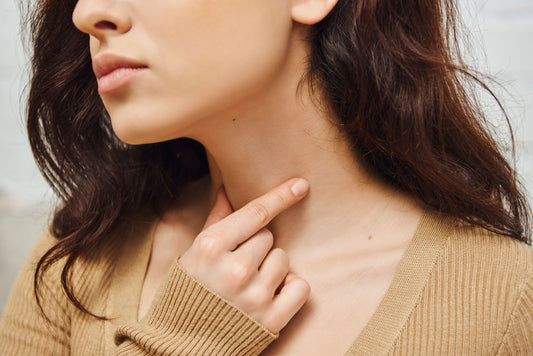by Laurie Dohmen, VMD, MS, RH (AHG)
Can you imagine working for a lifetime without ever taking a break? Whether the creature is a rodent, a tortoise, a pet, or a human, a healthy heart beats from the time before birth until death, which is a very long time to go without ever stopping. It is so important that we take care of our hearts! Hearts are amazing!
Ayurveda is one of the most ancient medical systems in the world, native to the Indian subcontinent. Thakar (1982) summed up the ancient Ayurvedic texts’ comments about the heart:
- “Foremost amongst the vital organs of the body
- “Heart is derived from the purest essence of blood and Kapha
- “It is the first organ to start its function in utero and the last to stop only at death
- “The whole body and its organs are dependent on the heart. Heart is the pivot on which the whole body rests
- “It is considered to be the special seat of soul or life factor
- “It never takes a rest by stopping its action, but takes rest only by slowing down the rate and force
- “Mind affects the activity of the heart…That is why the heart is considered to be the seat of mind and intellect”1.
Certainly Ayurvedic practitioners see the importance of heart health!
Ayurveda is health-oriented, not condition-oriented, so the first goal is how to live a healthy life. The second goal is if disease happens, treat it. Treatments are first diet, second lifestyle, third herbs or pharmaceuticals and lastly surgery. To take care of the heart, it is imperative “To avoid all sorts of stress and trauma; rashness of behavior and to follow the principles of hygiene and health, periodic purification, mental tranquility and balanced thought”1. In Ayurveda, nutrition comes in two ways: through the gastrointestinal system as physical/tangible food, and through the senses into the brain as impressions. Since the heart is the “seat of mind and intellect”, it is imperative to take in “positive impressions” and avoid negativity. Being in nature, keeping good company, and times of silence are all ways to increase positivity. For dogs, this includes being allowed to sniff fully on walks, as that is the canine’s main sensory input. For horses, this means spending most time outside, not in a stall.
It is also critical to eat healthfully. In Ayurveda, all food should be prepared fresh. (There should be no leftovers!) This can be thought of in two ways: First, home cook for your pets whenever possible. Second, to avoid your own leftovers, feed them to your dog (or your pig!). Dogs are evolved to be scavengers and to eat what we throw out.
It is ironic that Ayurveda puts herbs as the third treatment for disease, as Ayurvedic and Indian food is filled with culinary herbs. So we too can add them to food (ours and our pets’) for lasting health and wellness.
Ayush Pet® has two products that can be administered either directly to your pet or added to food: TrifalTM and Heart WarriorTM. Triphala is a classic Ayurvedic herbal combination which translates to tri-three, phala-fruit. The three fruits in the formula are amla (Emblica officinalis), belleric myrobalan (Terminalia bellerica), and Chebulic myrobalan (Terminalia chebula). What is special about triphala is that it treats all three doshas (personality types), which is very unusual. This is in part due to the fact that the combination of fruits has all the flavors (sweet, pungent, sour, bitter, astringent) except salty. Triphala is also considered rasayana, which means that it is rejuvenative and promotes longevity. In terms of cardiovascular health, triphala has been lauded for its ability to promote healthy blood lipids2. Our Triphala is especially nice because it comes in both liquid drops or capsules, so it is the owner's choice which is easier to administer daily. It has been shown to be safe for long-term daily use3.
Heart Warrior is a product obviously made specifically for heart health, and it can be co-administered with Triphala. Heart Warrior is an amazing product because it combines the ancient knowledge of Ayurveda with current science. It has familiar heart supportive supplements such as Co Q-10, calcium and magnesium with specifically Ayurvedic heart herbs Arjuna (Terminalia arjuna) and Indian elecampane (Inula racemosa).
Arjuna is a heart tonic that supports all aspects of heart health4, in part due to its antioxidant actions. It also contains trace minerals that support the heart, including calcium, magnesium, zinc and copper. Arjuna also has phytochemicals that support the heart’s contractility and strengthen blood vessels5. Overall, arjuna has been shown to improve cardiac muscle function and the pumping of blood. There is even a study in anesthetized dogs showing that blood pressure is supported with the concurrent use of anesthesia and arjuna6.
Indian elecampane is the Indian subcontinent’s species of elecampane. Inula helenium, commonly called just elecampane, is native to southeast Europe and Asia, and naturalized throughout Europe and USA. It is commonly used for respiratory support. Indian elecampane (I. racemosa), is also used for respiratory issues. However, it is also used for cardiovascular nourishment. It has been postulated that it helps the heart beat more efficiently, which supports healthy blood pressures7. Studies of Indian elecampane also show preliminary evidence in promoting cardiovascular health and chest comfort7.
Heart health depends on three primary things: a fresh, healthy diet, positive mental input and supportive herbs, such as Triphala andHeart Warrior from Ayush Pet. So feed your pet (and yourself) well, be a happy family and take Ayush Pet!
Laurie Dohmen, VMD, MS, RH (AHG)
Purple Moon Herbs and Studies
www.purplemoonherbstudies.com
drlaurie@purplemoonherbstudies.com
References:
- Heart- Its Structure Metabolism and Cardiac Tonics - As Described in Ayurveda. Thakar, VJ. 4, 1983, Ancient Science of Life, Vol. 2, pp. 181-186.
- Therapeutic Uses of Triphala in Ayurvedic Medicine. Peterson, C, Denniston, K and Chopra, D. 8, 2017, The Journal of Alternative and Complementary Medicine, Vol. 23, pp. 607-614.
- Terminalia arjuna in Cardiovascular Diseases: Making the Transition from Traditional to Modern Medicine in India. Maulik, S and Katiyar, C. 8, 2010, Current Pharmaceutical Biotechnology, Vol. 11, pp. 855-860.
- Safety of the Oral Triphala Recipe from Acute and Chronic Toxicity Tests in Sprague-Dawley Rats. Arpornchayanon, W., Subhawa, S., Jaijoy, K., Lertprasertsuk, N., Soonthornchareonnon, N., & Sireeratawong, S. (2022). Toxics, 10(9), 514. https://doi.org/10.3390/toxics10090514
- Khalsa, K. P. S. and Tierra, Michael. The Way of the Ayurvedic Herbs. Twin Lakes, WI : L<otus Press, 2011.
- Possible Mechanisms of Hypotention Produced 70% Alcoholic Extract of Terminalia arjuna (L.) in Anaesthetized Dogs. Nammi, S, et al. 5, 2003, BMC Complementary and Alternative Medicine, Vol. 3, pp. 1-4.
- Role of Pushkara guggulu in the management of ischaemic heart disease. Tripathi, S, et al. 1, 1984, Ancient Science of Life, Vol. 4, pp. 9-19.




